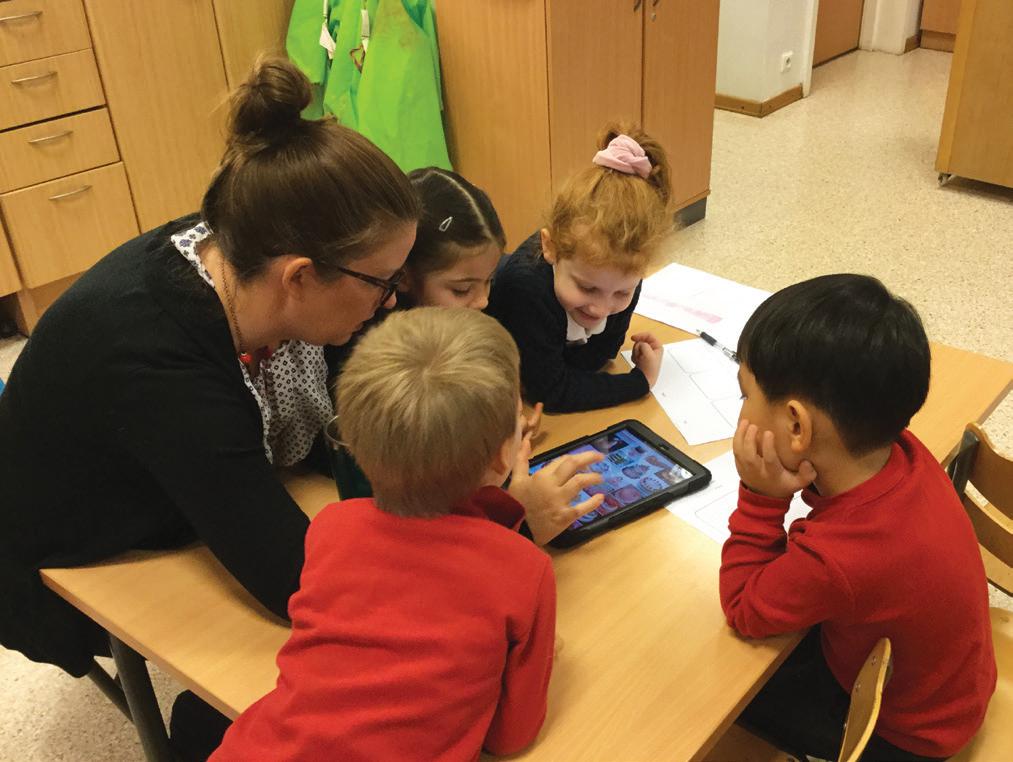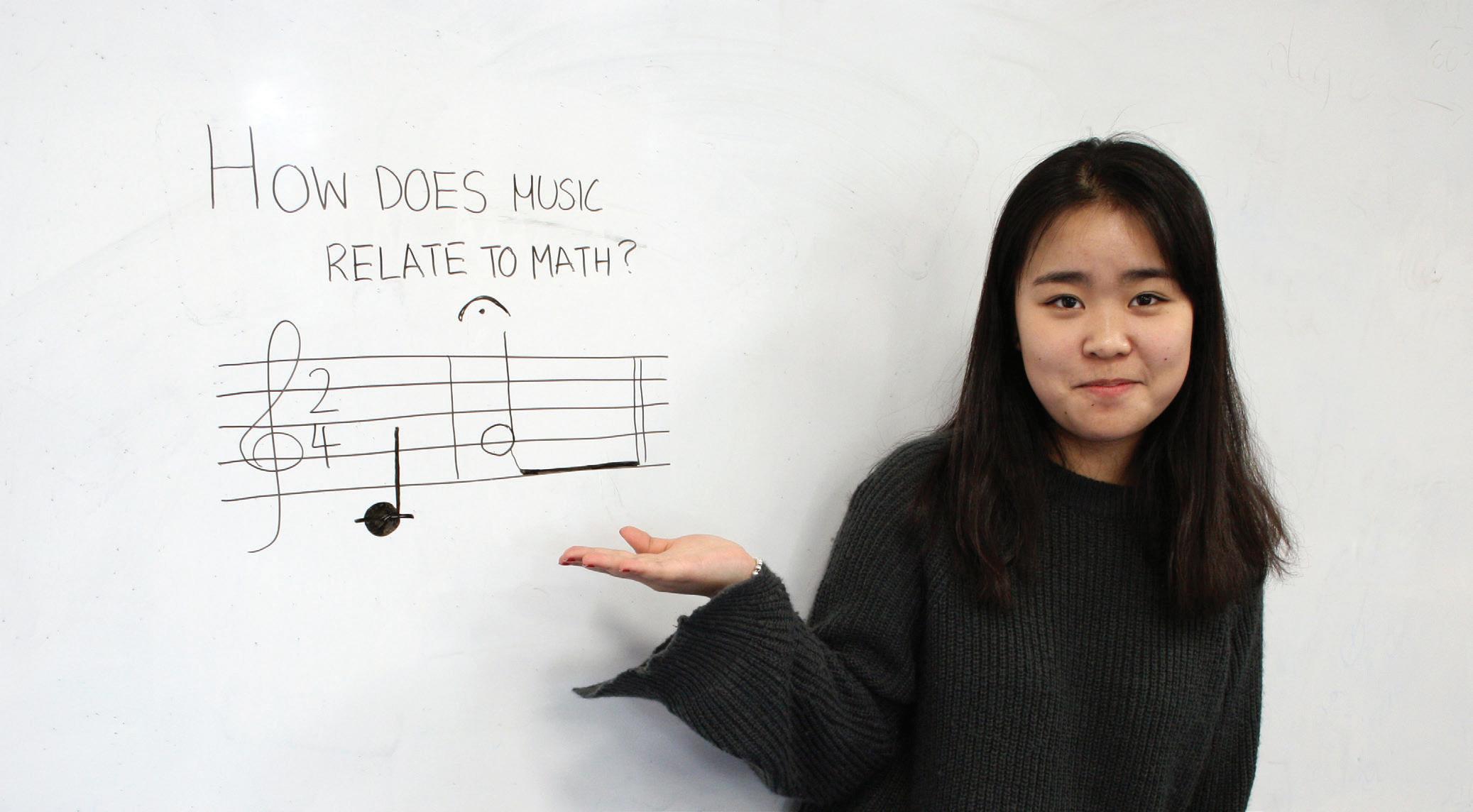
8 minute read
Will my son be a global citizen? Hedley Willsea
Will my son be a global citizen?
How early should I be thinking about this, wonders Hedley Willsea...
‘Ladies and gentlemen, parents and graduating students of the class of 2032, it strikes me that children are the most precious asset of any society. And looking back at my own childhood I see, in fact, that school and hospital visits are the only times in your life when every adult in the building is unconditionally committed to your wellbeing…’
In 2032 my son is due to graduate from high school, so I’ve started drafting my guest-of-honour speech fourteen years early. Well, there’s no time like the present and – as you can see – it still has a long way to go. As does my son, who began school this academic year. On his first day of term I was probably the most nervous adult in the school building, and as I spent the preceding evening frantically ironing name tags into his uniform, I realised that his first day would mark his first formal step into society. Even now, months after the hurdle of the first day, I brood over the prospect of him spending the next fourteen years being measured against a series of social and academic norms. I shouldn’t be losing any sleep over this – as a professional educator I am one of the people laying down the measuring sticks, and I’ve spent almost two decades doing this very same thing to other people’s children.
So why does it trouble me now? Ridiculous as it may sound, it has taken my son’s first day of school to force home the realisation that schooling is citizenship; there are rules to follow, even at four years old. And while in a perfect world education is a right, the reality is that it remains a privilege. For example, after visiting my son’s classroom on his first day I searched online for ‘third world classroom’ and the stark visual contrast still resonates. To put it another way, my son is lucky to attend an international school – but he doesn’t know it yet. If all goes well he will eventually study the IB (International Baccalaureate) programme, the aim of which is to ‘develop internationally-minded people who, recognising their common humanity and shared guardianship of the planet, help to create a better and more peaceful world through intercultural understanding and respect’ (IB, 2019a).
As a teacher who has spent eighteen years in international schools I have repeatedly questioned what it really means to be ‘internationally-minded’ and this has led me to peruse back issues of this (IS) magazine. In volume 15 issue 2 (2013), the main theme of which was international mindedness, Richard Harwood and Katharine Bailey offered the following definition of international mindedness, which they also called global consciousness:
‘A person’s capacity to transcend the limits of a worldview informed by a single experience of nationality, creed, culture or philosophy and recognises in the richness of diversity a multiplicity of ways of engaging with the world’.
In another article from the same issue, Ian Hill (previously IB deputy director general) defined education for international mindedness as:
‘the study of issues which have application beyond national borders and to which competencies such as critical thinking and collaboration are applied in order to shape attitudes leading to action which will be conducive to intercultural understanding, peaceful co-existence and global sustainable development for the future of the human race.’
According to the IB Learner Profile (IB, 2019b), internationally-minded students are, among another things, caring, principled and open-minded. But as I read all of the above, I cannot help but ask: is it all simply an ideal? What of the ‘real world’ back home in public sector schools? As David Wilkinson in IS magazine volume 19 issue 2 (2017) notes:
‘[T]he question of access to the IB programmes needs to be addressed and acted upon, particularly in the developing world where the cost of the programmes is prohibitively expensive for all except the international schools that serve the local elite and the transient expatriate communities.’
Admittedly the IB is viewed by some in the UK (Middleton, 2010) as for the more privileged independent sector but, according to www.ib-schools.eu, as of 2014 there were 155 schools in the UK offering the IB, only 83 of which were independent. The IB has also been criticised for its frontloading of the IB Learner Profile; non-IB adherents, for example those schools favouring A-levels, may ‘prefer character-building to
be a by-product of education, rather than a target’ (Middleton, 2010). In fact, during a summer reunion at the British school I attended as a teenager, one of its current teachers responded to my advocacy of the IB with the comment that ‘We have our own school motto which has stood the test of time for over three hundred years; we’ve no need of a cookie-cutter approach here’. While I would hope that my personal perspective has broadened enough since working overseas to be not too concerned by such a remark, I can understand the sentiment. For example, as a British citizen born and educated in the UK I have a strong sense of national identity and a set of values rooted in history and tradition. However, as a parent I am acutely aware that my son does not and will not have this bedrock. He has two nationalities, and while we are currently living in Russia, my wife’s country of origin, he has only experienced my own country of origin during short visits. We will eventually leave Russia, we will not live in the UK but elsewhere, and as such he will eventually be classed as a Third Culture Kid – with apologies to IS editors Mary Hayden and Jeff Thompson, and contributors such as Adam Poole and Melodye Rooney who, in IS volume 20 issue 1 (2017) and volume 20 issue 3 (2018) have argued the term is now outdated.
In my opinion my son needs the IB or an equivalent, and he needs his teachers to relate it to his school’s mission statement. All in all, he needs his parents to work with his teachers to present these things to him as something realistically attainable in all areas of life, rather than simply as an ideal in the classroom. As John Wells states in IS volume 19 issue 2 (2017):
‘Whether a student now follows a national curriculum or an international programme, the chances are high that teachers and schools will be expected to complement academic knowledge and skills with a specific set of attributes, values or dispositions that are deemed to be an integral part of being a 21st century learner; someone who might be described as internationally minded, or a global citizen.’
Indeed, terms such as ‘international mindedness’ and ‘global citizenship’ are not the exclusive preserve of international schools. For example, the Programme for International Student Assessment (PISA, 2019) is a worldwide survey evaluating education systems by testing the skills and knowledge of 15-year-olds in science, mathematics, reading, collaborative problem-solving and financial literacy. According to its coordinator Andreas Schleicher, 193 countries in 2015 committed to achieving the goals of the United Nations, these being ‘the blueprint to achieve a better and more sustainable future for all. They address the global challenges we face, including those related to poverty, inequality, climate, environmental degradation, prosperity, and peace and justice’ (UN, 2019)
As Schleicher observes in his blog, ‘The extent to which that vision becomes a reality will in no small way depend on what is happening in today’s classrooms’ (Schleicher, 2017); presumably referring in so doing to a national as well as an international context. He also states that ‘this has inspired the OECD Programme for International Student Assessment (PISA) to include global competence in its metrics for quality, equity and effectiveness in education’ as of 2018. He also notes that ‘PISA conceives of global competence as a multidimensional, lifelong learning goal. Globally competent individuals can examine local, global and intercultural issues, understand and appreciate different perspectives and world views, interact successfully and respectfully with others, and take responsible action toward sustainability and collective well-being’. If this is global competence, then it is already a requirement for our IB graduates currently entering the job market. For example, a report published by the Mitchell Institute (2017), Preparing Young People for the Future of Work, states that ‘Young people without capabilities to work in teams, solve problems and collaborate do not fare well in the labour market’. Perhaps the IB has already taken steps to address this in a more practical context. For example, in the Diploma Programme as well as in the Primary Years Programme (PYP) and Middle Years Programme (MYP), cognitive, metacognitive and affective skills are grouped into the same five ATL (Approaches to Learning) categories: Thinking Skills, Communication skills, Social Skills, Self-Management Skills and Research Skills.
Whatever the case, as a novice parent I look at my son, and above all else just want him to grow up to be a nice person and a good human being. However, as a teacher I also want him to develop a perspective and a skill set that will equip him for a future which even now, by virtue of technological development and sheer necessity, is ultimately global in both content and scope.
References
IB (2019a) www.ibo.org/globalassets/digital-tookit/brochures/ corporate-brochure-en.pdf IB (2019b) www.ibo.org/benefits/learner-profile/ Middleton C (2010) IB or Not IB? That is the Question. Accessed via www.telegraph.co.uk/education/secondaryeducation/8125719/IB-ornot-IB-That-is-the-question.html Mitchell Institute (2017) www.mitchellinstitute.org.au/wp-content/ uploads/2017/03/Preparing-young-people-for-the-future-of-work.pdf PISA (2019) www.oecd.org/pisa/ Schleicher A (2017) http://oecdeducationtoday.blogspot.com/2017/12/ educating-our-youth-to-care-about-each.html UN (2019) www.un.org/sustainabledevelopment/sustainabledevelopment-goals/









